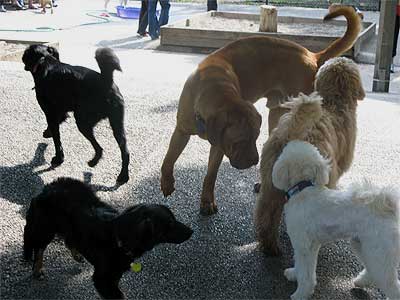
photo courtesy of janeyhenning’s photostream
If there’s one thing you’ll do over and over in your life as GM, it’s add new players to your game. And when you add a new player, you always add a new character.
Old players move away or get married or find jobs that keep them from gaming as they did before. By the same token, new players move into an area looking for a game, players get new boyfriends and girlfriends to introduce to the game, or the new guy at work turns out to have been playing your group’s system for more than twenty years.
What it boils down to is this: every GM should know how to introduce a new player to their existing game. In this last post on my series of introducing new players to your game, I’m going to discuss ways of introducing that new player’s character to your game.
Adding a new character
There are two main types issues to deal with when adding a new PC to your currently running game:
- in-character
- out-of-character
Out-of-character
Out-of-character issues deal primarily with bringing the new player up to speed with your campaign and making sure she has the information she needs to play. If your game has a website or wiki, that’s a big help to a new player, who can then go and familiarize herself with crucial campaign information.
If you don’t have an on-line campaign presence, this would be a good time to consider creating one. Probably the best known wiki space for RPGs is Obsidian Portal, for good reason. This site allows you to set up a one-stop campaign information site for your game, including PC and NPC lists, items, and other information you players should know.
Make sure your new player has information about any house rules or table rules you use. Also include any social contracts, group charters, or game traditions your group has. If the group has a social charter or contract, get your new player a copy of it in writing and have her sign it to show her agreement to abide by it. This may seem unnecessary, but it could help avoid conflicts later down the road.
Finally, make sure you have your new player’s name and contact information. It seems obvious, but it’s very easy to overlook this step in the bustle of getting her settled into your game. At a minimum, get her full name and favorite way to be contacted, whether by phone or email, as well as a way to reach her for last-minute schedule changes.
In-character
Before the new player can join your game, he has to have a character. Ask him about his character idea before he sits down to actually create it. That way you can head off an idea that just won’t fit your game from the very beginning. Make sure his idea will work with your existing PCs and will be a good addition to the campaign as a whole. Don’t be afraid to tweak a player’s idea to make it fit better, or even to say “no” outright to an idea that simply won’t work. Resist the temptation to tweak your game to fit the new player.
Don’t penalize your new PC. Let him start at a similar power level to the rest of the group. Many GMs like to start a new PC one level below the current PCs and this can work very well. Consider letting your current players to tweak their characters to better include the new PC. For example, if the new character is a rogue, consider allowing the group’s bard to shift some of his lock-picking skill points to a performance or social skill. That way, each character can shine in his own area and the two of them won’t be stepping on each others’ toes so much.
Get your group’s input on how to work the new character into the game. There are as many ways as there are players and games in the world. You might make the new character a relative of one of the existing PCs, for example. Or you might have the party rescue him from jail. However you decide to do it, ask your players for suggestions. Making this a group effort gives the current players a stake in welcoming the “new guy”.
Other posts in this series:
- Passing it On: Introducing New Players to RPGs
- Introducing a New Player to an Established Group
- Characters for Brand New Players
- Introducing an Experienced New Player to Your Game
Articles Zemanta thinks are related
- The Ultimate Disruption: The loss of a player (campaignmastery.com)
- Transitioning from DM to Player (sniperd20.blogspot.com)
- Selected Ticks Of The Clock – Session Scheduling for RPGs (campaignmastery.com)
- Practical Thoughts on Expectations (GM Edition) (morrisonmp.wordpress.com)







2 responses to “Introducing a New Character to Your Game”